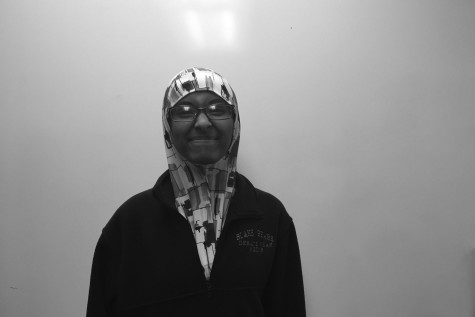“Be a man!” Everyone has heard this phrase, whether it was from their teachers, parents, coaches, or fellow classmates. But outside being a noun to describe an identity, why does this phrase hold a great amount of emotional and social meaning?
Integrity, sincerity, and truth were all frequently repeated words used both at Blake and in a national New York Times survey done on the definition of emotional honesty. According to Nicolas Barra ‘18, “[Emotional Honesty] is displaying emotions rather than hiding it or suppressing it in some way. Positive or negative you feel able to display it.” These all seem characteristics that should be valued by all types people regardless of difference in gender, sexuality, race, or other varying identities, however, reality tells a different story. According to Anselma Lopez ‘17, “society has irrational expectations of emotional honesty for both genders. For example, boys are supposed to suppress their emotions and girls are considered “overly emotional.” Girls are already considered emotional, so emotional honesty is more acceptable. In contrast, the masculine story seems to push emotional dishonesty for guys.
“Hormones?” Although greater amount of hormones are always used to describe why women are just more whiny and emotional than men, this disparity in emotional honesty between girls and guys has no scientific basis. As Ashley Allen ‘17 stated, “[emotional honesty] shouldn’t be different for boys and girls, hormones for girls may convolute the reason we feel a certain emotion but it is not about the reason but rather the emotion.” Studies actually show the opposite. According to a 2012 study done by Harvard Medical school, young boys were “more likely to show facial expressions of anger, to fuss, to gesture… and tend to cry more than girls.” This trend was seen to continue till adolescent years.
Society has irrational expectations of emotional honesty for both genders. For example, boys are supposed to suppress their emotions and girls are considered ‘overly emotional.’
— Anselma Lopez '17
Being insensitive, strong, lacking extreme emotions are social hallmarks of a “man,” but it seems to go against all mental and natural structures. There is a gap between social and natural reasonings, but at a point, social reasoning just takes over. The study goes on to say that that “we socialize this vulnerability out of men. Once they reach ages 15 or 16, “they begin to sound like gender stereotypes.” According to Barra, “deep gender roles and perspectives of masculinity – a lot of the traditional traits don’t have any room for over displays of emotions that aren’t powerful and aggressive.” In summary, men are expected to practice emotional control and emotional dishonesty, something that directly goes against their and all humans mental structure.
Disparities in emotional honesty don’t just end with gender inequalities. Racial inequalities also hinder a person’s ability to be open and emotionally honest. According to Lopez, “there is stigmatization around minorities expressing their dissatisfaction about systematic disadvantages our society has thrust upon them since birth. We are told that we are often overreacting to a situation. Therefore, devaluing our actual experience and suffering.”
Even in an environment like Blake that is more open to fluidity in expression than seen at the national level, there are many aspects of Blake that propels these social stereotypes. On the sports field, Barra states that, Disparities in emotional honesty, however, don’t just end with gender inequalities. “Coaches reinforce ideas of like “eat them alive” “man up” probably leads to a lot less of emotional showing.” Safaa Roba ‘19 further states, “At Blake, that is something I find myself frequently hiding and for the most part avoiding due to how I identify racially and sexually. A lot of the times I try to remove myself from such situations because I end up receiving the cold shoulder or a simple reply that completely renounced my feelings entirely.” Emotional stigmatization allows an environment of flat characters, where acceptance and open-mindedness is lacking. That is an environment that not only goes against basic human nature, but also growth. Many stated that small details within a classroom, like judgment free zone posters, helped alleviate the social stigmatization of emotions. Overall, however, it took constantly having both students and teachers/coaches conversations about this issue in the disparity of emotional honesty existing in the first place, then being able reflect that resistant against cultural norms in everyday conversations.







